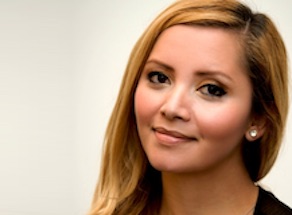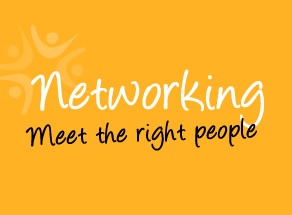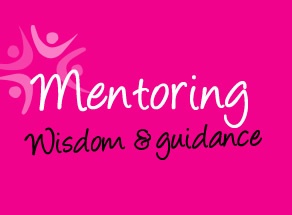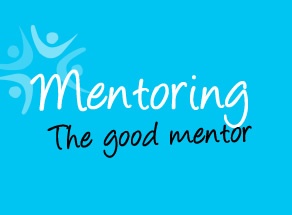
Travelling an unexpected path to success
02/03/2017 06:00AM | 5993 viewsBorn Leaders
Hispanics and Latinos who mindfully tap one or more of the six elements of an “immigrant mindset” can attract greater opportunities for success. By nature, immigrants see opportunity everywhere; more easily adapt to changing conditions; pursue their passions to uncover endless possibilities; do their jobs as if they owned the business; form strong bonds to treat colleagues and friends as family; and willingly share that success with others to keep the prosperity cycle going. Born Leaders tells their stories.
Sometimes finding your true path in life and career means letting go of preconceived notions and emotional barriers – even hitting an unexpected bottom along the way. City of Hope (COH) project coordinator Yuddy Jesus is intimately familiar with that story.
As a young girl who emigrated with her family to the United States from Merida, Yucatan, Mexico, she was told marriage was her best path to success. But Jesus – who was driven in school and excelled in art during high school – longed for a career, as well.
“When I was young, for cultural reasons my mom always got upset about me talking about school or having a career,” says Jesus, who works in the COH office tasked with protecting human research participants.“She wanted me to be self sufficient, but was afraid of me going too far out in the world. I never thought I could have a career, or travel, and was afraid to try. I was caught between what I wanted to do, and what my mother envisioned for me.”
Tradition won, and Jesus did marry young. She also dropped out of college at 19, and quickly had two children. But her “unhealthy” marriage, she says, ended badly a few years later. So badly, Jesus was actually homeless with her kids for a brief period.
An unexpected bump in the road
Scared and without a compass, Jesus wondered how she’d turn her life around. Her own mental limitations had led her to feel trapped, as well. Several friends and family turned their backs on her. Disappointed in her choices, Jesus’s mother also declined to help. “My mother’s philosophy is: if you dig yourself into a hole, you must dig yourself out on your own,” she says. But realizing she had little to lose during the unfortunate turn of events provided Jesus an unexpected freedom.
“It was a blessing in disguise because I was finally able to let go of everything I needed to and start a better path. It was the break I needed,” she says. That included leaving behind the relationship and an outdated perspective on life and career. “Materialistically, I had nothing. He kept our apartment, car and anything I could not carry with me at the time. But I had my children. I still had my drive and will power, and I finally felt like ‘I can take reign over my life; I can try to change this.”
After moving around without a permanent home for about two months, Jesus secured an apartment for her family. She also signed with a temping agency, which mentioned City of Hope (COH) as a possible worksite. “I was skeptical. All I had was a high school diploma. I didn’t believe I could get here. I didn’t believe I was good enough. But I was willing to try,” she says. She soon landed a clerical temp job with the medical research center, and was on her way.
Seeing opportunity everywhere
Once at COH, Jesus naturally embraced her immigrant mindset, with its ability to see opportunities everywhere and pursue them. She soon began making friends with colleagues all around her. And while that didn’t lead to a full-time position, the temp agency eventually offered her a clericaljob in her current division, which became permanent a year later.
“I worked my way up. I made use of everything I could find,” she says. “I would pick my colleagues’ brains. I kept cheat sheets to better prepare myself, and show I could handle more responsibility.” She also joined COH’s employee support groups, including the Young Professionals Network, where she met others who helped guide and mentor her.
The efforts helped the young achiever rise through the clerical ranks within her department. As her success continued, she moved up to project coordination. Today, her title – project coordinator for the Office of Human Research Subjects Protection, which supports the Institutional Review Board (IRB), under Research Protections – is quite a mouthful. It’s also an important role in a key department. As needed, she also serves as a Qualified Health Care Versed Spanish Interpreter for COH.
Her division works to ensure the safety of participants and patients in experimental research studies. That might include, for example, a study to try a chemotherapy treatment agent not yet approved by FDA, or to test diagnostic tools to identify a disease or health condition. Jesus’s department is mandated by the federal government to oversee, review and approve COH research.
“We weigh the benefit-to-risk ratio. The benefit to the participant and science must be greater than the risk,” she says.
Under the department’s Institutional Review Board, Jesus helps keep research staff current on required education, and facilitates related training. She also processes requests to add subjects or community research site partners to existing studies. Other duties include brokering foreign language translation requests, assisting in the development of policies, and maintaining the department’s Website.
Jesus’s responsibilities sometimes even help directly save lives. Because the majority of COH patients have cancer, she and her colleagues must work with a sense of urgency (occasionally within 48 hours) to facilitate the approval for single subject exceptions. In some cases, this includes a one-time approval for use of an experimental drug or other treatment. In one case, due to quick administrative work of Jesus’s team, the IRB approved treatment for a young boy cancer patient who lived because of the efforts.
As an interpreter, she also supports efforts to extend access of COH’s treatments and research to non-English speaking populations.
Finding her passion
By landing in a good place and taking advantage of opportunities around her and pursing her love of knowledge, Jesus now has a successful career, as she envisioned as a high school student who loved learning and art. She also discovered a new passion: Helping others.
“When I saw how the work I do at City of Hope benefits others, it truly humbled me,” she says of the medical research center’s focus on curing cancer, diabetes and other serious diseases.
“I’ll never forget the first time a patient told me, ‘Elsewhere I was given an expiration date. Here I was given options and hope’; the hug from a mother who learned her child was finally cancer free; and the co-worker who decided to pursue higher education because I did.”
Outside of COH, Jesus has participated in the AIDS Walk for the past 13 years, to raise funding and awareness for HIV/AIDS treatment and prevention programs and services. Her team supports efforts benefiting communities in New York, San Francisco and Los Angeles. She has shared her story with a local community college class, as well, and looks forward to mentoring career seekers who encountered similar challenges in their lives.
“I strive to make a positive impact in all I do and the lives of those I meet,” she says. “Ultimately, I strive to lead a life that my children can be proud of and inspired by. They are my motivation.”
Securing a bright future
During her time with COH, Jesus also returned to college, and is scheduled to graduate in 2017 with a bachelor’s degree in public administration. Jesus also hopes to earn her master’s degree in future, which should open even more career doors.
For those seeking jobs in health care, her advice is to “go for it.”
“The key is to try. Everyone second-guesses themselves when measured against a long list of qualifications. That’s normal,” she says. “But it’s important to remember that only one of two outcomes are guaranteed: You get the job, or your learn what you need to improve on. Either way, you learn how close or far you are to your goals. If you don’t try, you won’t know.”
Most importantly, don’t sell yourself short when pursuing a career path, as she did for many years.
“I realized that the most challenging part of unfamiliar territory isn’t the barriers, fear of failure, or change; It’s the feelings and thoughts we experience of not being good enough for something better,” she says. “But I’ve learned that we create limitations and challenges for ourselves when we give into these feelings and thoughts in our minds.”






Post your Comment
Please login or sign up to comment
Comments